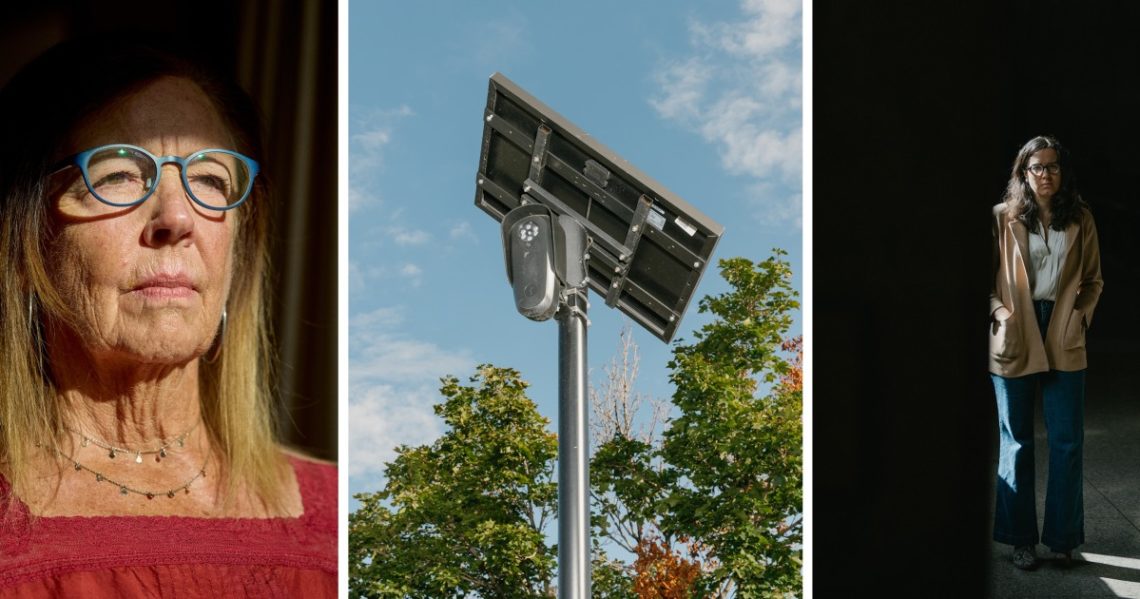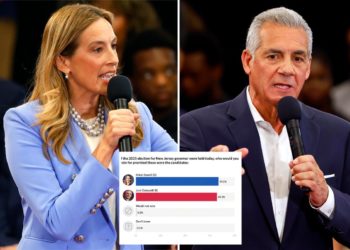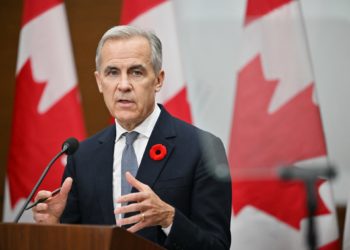She is one of a growing number of Americans who have gotten involved in local politics to dispute the use of Flock equipment in their towns. NBC News spoke to activists and local politicians pushing back in seven states — Arizona, Colorado, New York, Oregon, Tennessee, Texas and Virginia — who have worked to end their cities’ and towns’ contracts with Flock and get the cameras removed.
Their politics fall across the spectrum, from conservative constitutionalists to progressives aghast at the idea of their communities’ potentially sharing location data with the Trump administration as Flock did this year, united by growing worries about their privacy.
So far, their success is limited, particularly compared with the rapid spread of the company’s reach, but awareness of the issue is quickly spreading.
While automatic license plate readers have been fixtures on American roads for decades, Flock, founded in 2017, centralizes their data like never before, creating a vast, interconnected surveillance database for law enforcement agencies using information from its suite of products, including facial recognition cameras, drones and audio detectors.
With the help of her husband, Boyce set up a simple website, livefreeaz.com, where Sedonans could share their email addresses and receive instructions on how to voice their displeasure with the cameras to the City Council. She talked to her friends and neighbors about the cameras and encouraged them to attend council meetings.
Boyce, who says she voted for President Donald Trump and is a staunch supporter of Health and Human Services Secretary Robert F. Kennedy Jr., found herself making common cause with people on the left who also opposed the cameras.
“I’ve had to really be open to having conversations with people I normally wouldn’t be having conversations with,” she said.
Her coalition won out. On Sept. 9, the City Council voted unanimously to end Sedona’s contract with Flock.
Sedona is at least the eighth city since this summer to cancel or pause its contract with Flock, or let it lapse, after local protests, joining Austin, Texas, and the smaller towns of Oak Park, Illinois; Eugene and Springfield, Oregon; Evanston, Indiana; Scarsdale, New York; and Gig Harbor, Washington.
A Flock spokesperson said the number of paused or canceled contracts is is small compared to the nearly 800 U.S. cities that have voted to pass Flock contracts this year.
The scale of Flock’s network and the amount of data its users have access to are unique.
Flock contracts with more than 5,000 law enforcement agencies across the United States, its CEO has said, and scans over 20 billion license plates per month, according to Flock’s website. More than 75% of those offices opt in to provide information to Flock’s live national database, which allows law enforcement agencies from across the country to view drivers’ license plate numbers, locations and directions and the times of recording without warrants, Flock told the office of Sen. Ron Wyden, D-Ore.
In an ongoing lawsuit accusing Norfolk, Virginia, of violating the Fourth Amendment’s privacy protections by using the cameras, two plaintiffs said they were tracked hundreds of times over a few months this year. A Flock spokesperson told NBC News that the number was misleading, as Flock ALPRs might take multiple photographs in a single second as a vehicle crosses an intersection, but declined to provide specific numbers. In response to the Norfolk lawsuit and other allegations that Flock violates the Constitution, a spokesperson pointed to the fact that to date, courts have generally agreed with the company that ALPR searches shouldn’t require warrants and don’t violate the Constitution. Norfolk declined to comment on ongoing litigation.
The post Flock police cameras scan billions per month, sparking protests appeared first on NBC News.




